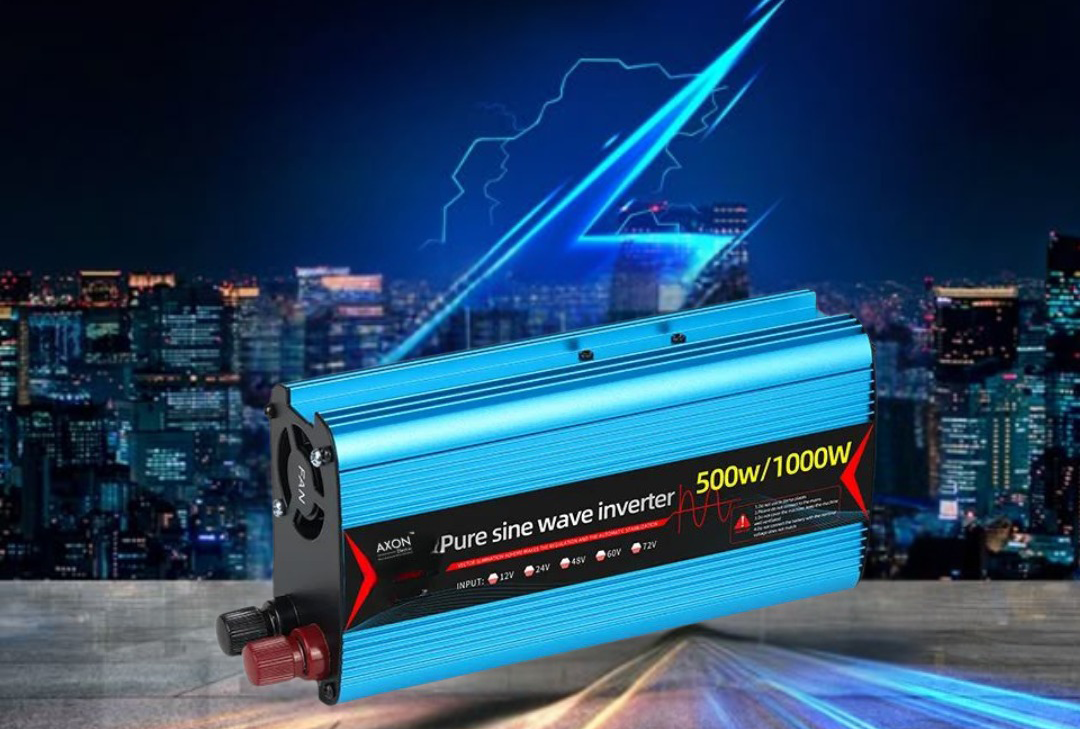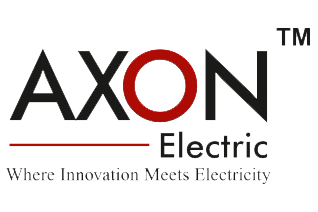
What is inverter?
An inverter is an electrical device that converts direct current (DC) into alternating current
(AC), enabling the use of electrical appliances and systems that require AC power in places
where only DC power is available, such as from batteries or solar panels. It plays a crucial role in
various applications, including residential power backup systems, solar power installations, and
automobiles. Inverters work by using electronic circuits to rapidly switch the direction of the DC
input, creating a waveform that mimics AC output. There are different types of inverters, such as
pure sine wave, modified sine wave, and square wave inverters, each suited for specific
applications based on efficiency, cost, and compatibility with devices. Overall, inverters are
essential for ensuring a continuous and reliable power supply in both off-grid and grid-connected
systems.
Features of inverter:-
- Pure Sine Wave Output: Produces a clean, smooth wave similar to the power from the
electricity grid. This ensures that all AC appliances function exactly as they would when
connected to the main supply. It’s crucial for sensitive electronics and devices with
microprocessors. - Stable Voltage and Frequency: Maintains a consistent voltage (typically 230V or 110V)
and frequency (50Hz or 60Hz depending on the region), even under varying loads. This
protects appliances from voltage fluctuations that could cause malfunction or permanent
damage. - High Efficiency: Modern pure sine wave inverters have high conversion efficiency
(80%–95%), meaning less energy is lost during the DC to AC conversion process. This
results in better performance and less heat generation, which also extends the battery’s
life. - Low Total Harmonic Distortion (THD): THD is a measure of distortion in the AC signal.
Pure sine wave inverters keep THD below 3%, which is important for maintaining signal
quality in audio equipment, precise functioning of medical instruments, and stability of
computing systems. - Silent Operation: Unlike generators, which make noise, pure sine wave inverters operate
silently. Some use fan-based cooling systems that turn on only when the system heats up,
keeping noise levels very low, ideal for homes and offices.
Benefits of inverter:-
- Safe for All Appliances: Appliances like refrigerators, washing machines, computers, and LED
TVs are designed to work on pure AC power. Using modified or square wave inverters can
damage these devices, but pure sine wave inverters offer 100% safety and compatibility. - Longer Appliance Lifespan: Appliances connected to a pure sine wave inverter run more
smoothly and at normal temperatures, reducing electrical stress on components. This leads to
fewer breakdowns and a longer life for the equipment. - Reduced Noise in Audio/Video Equipment:Audio amplifiers, speakers, and TVs function
more clearly without any background hum or distortion when powered by a pure sine wave
inverter, which is essential for professionals using AV equipment or home theatres. - Compatible with All Loads:
It can power:- Resistive loads (like lights, toasters, and heaters)
- Inductive loads (like fans, motors, pumps)
- Capacitive loads (like laser printers, some medical devices)
- This versatility makes it suitable for homes, businesses, and workshops.
- Improved Energy Efficiency: Because of high conversion efficiency and cleaner waveforms,
energy is used more effectively. Appliances draw the power they need without wasting energy,
which is especially important in solar-powered systems where power is limited. - Reliable Backup Power: In case of power cuts or grid failure, a pure sine wave inverter can
seamlessly take over without damaging connected devices. This is critical for medical setups,
server rooms, and home offices where uptime matters. - Environmentally Friendly: When paired with solar panels, a pure sine wave inverter forms part
of a clean energy solution, reducing reliance on fossil fuels and helping lower carbon emissions.
Applications of Inverter:
- Home Power Backup: Inverters are used in homes to provide electricity during power cuts.
They run fans, lights, TVs, and even fridges using power stored in batteries. This helps you stay
comfortable even when there’s no electricity. - Solar Power Systems: In solar systems, inverters convert the DC power from solar panels
into AC power, which is needed to run home appliances. Without an inverter, solar energy can’t
be used directly in most homes. - Cars, Trucks & RVs: Inverters in vehicles help you use normal AC appliances like phone
chargers, laptops, or mini-fridges while traveling. They convert the car battery’s power into
usable electricity. - Factories and Industry: Inverters are used to control machines, motors, and pumps in
factories. They help save energy and allow machines to run smoothly at different speeds. - Offices and Computers: Inverters keep computers, printers, and internet equipment running
during power cuts. This helps avoid losing important work or internet connection in offices. - Hospitals and Medical Devices: Inverters provide backup power to important medical
equipment like oxygen machines, monitors, and ventilators. This is very important when power
goes off in hospitals or home care.
Conclusion:-
An inverter is a vital electrical device that converts DC (direct current) into AC (alternating
current), making it possible to power everyday appliances and machines from sources like
batteries and solar panels. It plays an important role in homes, industries, hospitals, vehicles, and
renewable energy systems by ensuring a continuous and reliable power supply. With increasing
power demands and the growing use of clean energy, inverters have become essential for energy
efficiency, safety, and convenience. Choosing the right type of inverter-especially a pure sine
wave inverter-helps protect sensitive equipment and ensures smooth and stable performance in
all conditions.

